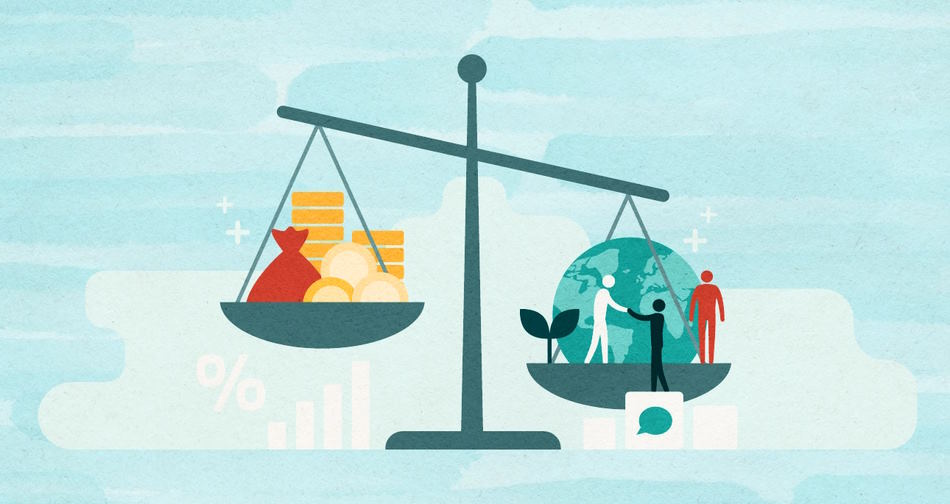The Impact of Lobbying and Corporate Influence on Political Reforms
The role of lobbying and corporate influence in politics has long been a subject of debate and scrutiny. As political reforms play a crucial role in shaping democratic governance, understanding the impact of lobbying and corporate influence on these reforms is essential. Lobbying, which involves the act of influencing policymakers to make decisions in favor of certain interests, and corporate influence, which stems from the power and resources of corporations, can have significant effects on the development and outcomes of political reforms. This article will explore the historical overview, positive and negative impacts, challenges and limitations, and case studies of lobbying and corporate influence on political reforms. By examining these dimensions, we can gain insights into the complex relationship between lobbying, corporate influence, and political reforms, and its implications for democracy and public policy.
Positive Impacts of Lobbying and Corporate Influence on Political Reforms
Lobbying and corporate influence in politics are often criticized for their potential negative impacts. However, it’s important to recognize that there can also be positive outcomes when lobbying and corporate influence are used to advocate for policy changes that benefit the public interest. Here are some ways in which lobbying and corporate influence can have positive impacts on political reforms:
Advocacy for policy changes that benefit the public interest: Lobbyists and corporations can use their influence to push for policy changes that align with the broader public interest. For example, they can advocate for environmental regulations that protect the environment and public health, or for social policies that promote equality and social justice. By leveraging their resources and expertise, lobbying efforts can help shape policy reforms that benefit the overall well-being of society.

Mobilization of resources for political reforms: Lobbying and corporate influence can also play a positive role in mobilizing resources to support political reforms. Lobbyists and corporations often have access to significant financial and organizational resources that can be used to support advocacy efforts for policy changes. This can include funding for research, grassroots campaigns, and public awareness campaigns. Such resources can be instrumental in driving meaningful political reforms and advancing the interests of marginalized groups.
Promotion of transparency and accountability in government: Lobbyists are often required to register and disclose their activities, which can help shed light on the interactions between policymakers and special interests. Additionally, corporate influence can push for more transparent and accountable governance practices within corporations themselves. This can include disclosure of political contributions, adoption of ethical codes of conduct, and robust corporate social responsibility initiatives.
Examples of successful lobbying efforts and corporate influence on positive political reforms: There are numerous examples of successful lobbying efforts and corporate influence leading to positive political reforms. For instance, advocacy efforts by environmental organizations and corporations have resulted in the establishment of protected areas, renewable energy policies, and emissions regulations. Similarly, lobbying by civil rights organizations and corporations has led to the enactment of anti-discrimination laws, minimum wage policies, and workplace safety regulations. These successes demonstrate that lobbying and corporate influence can be used for positive change when aligned with the public interest.
Negative Impacts of Lobbying and Corporate Influence on Political Reforms
Here are some of the ways in which lobbying and corporate influence can have detrimental effects on the democratic process:
Distortion of policy outcomes in favor of special interests: Lobbying efforts and corporate influence can sometimes result in policy outcomes that prioritize the interests of specific industries or corporations over the broader public interest. This can lead to policies that favor short-term gains for special interests, while neglecting long-term societal benefits or disregarding the needs of marginalized groups. Such distortion of policy outcomes can undermine the integrity and effectiveness of political reforms, leading to outcomes that are not in the best interest of the general public.

Erosion of public trust in government and democratic institutions: When lobbying and corporate influence are perceived as unduly influencing policy decisions, it can erode public trust in government and democratic institutions. Citizens may perceive that policies are driven by special interests rather than the will of the people, leading to a loss of faith in the democratic process. This erosion of public trust can weaken the legitimacy of political reforms and undermine the overall functioning of democratic governance.
Exacerbation of inequality and social injustice: Lobbying and corporate influence can exacerbate inequality and social injustice by perpetuating systems that benefit those with greater resources and power. Special interests may use lobbying and corporate influence to advance policies that protect their own economic interests at the expense of vulnerable populations, exacerbating existing disparities in wealth, power, and opportunities. This can further marginalize marginalized communities and perpetuate social injustice, undermining the potential for equitable and inclusive political reforms.
Examples of lobbying and corporate influence leading to negative political reforms or hindering meaningful reforms: There have been instances where lobbying and corporate influence have resulted in negative political reforms or hindered meaningful reforms. For example, the influence of big tobacco companies has been linked to the weakening of anti-smoking regulations, and the lobbying efforts of the gun industry have been associated with the blocking of gun control measures. These examples highlight how lobbying and corporate influence can have adverse effects on policy outcomes and hinder meaningful reforms aimed at addressing societal challenges.

